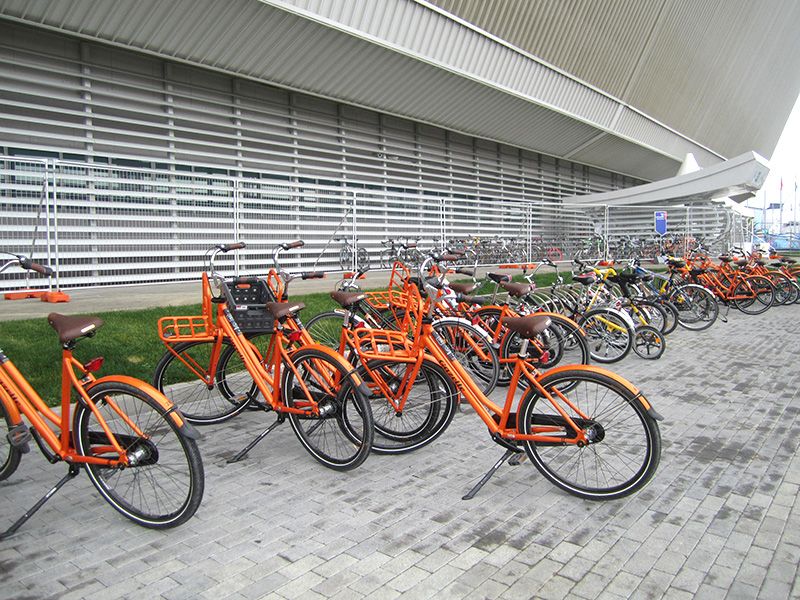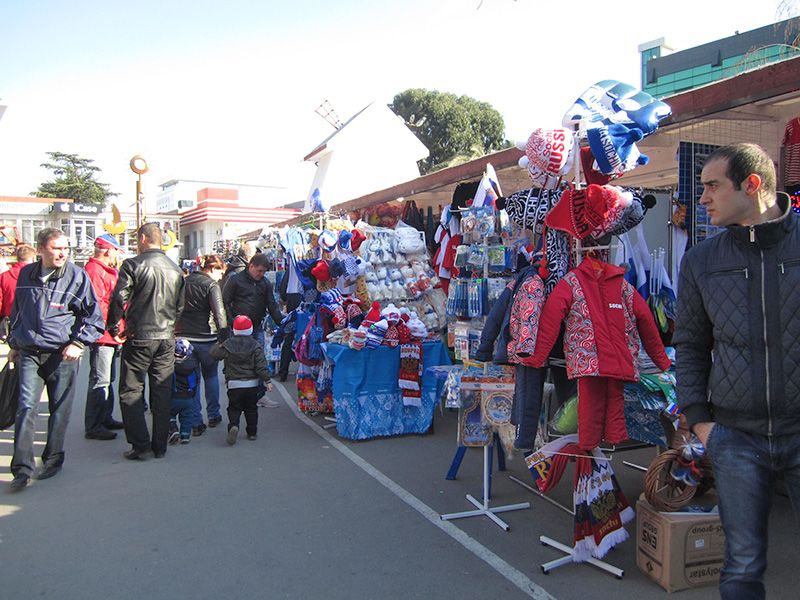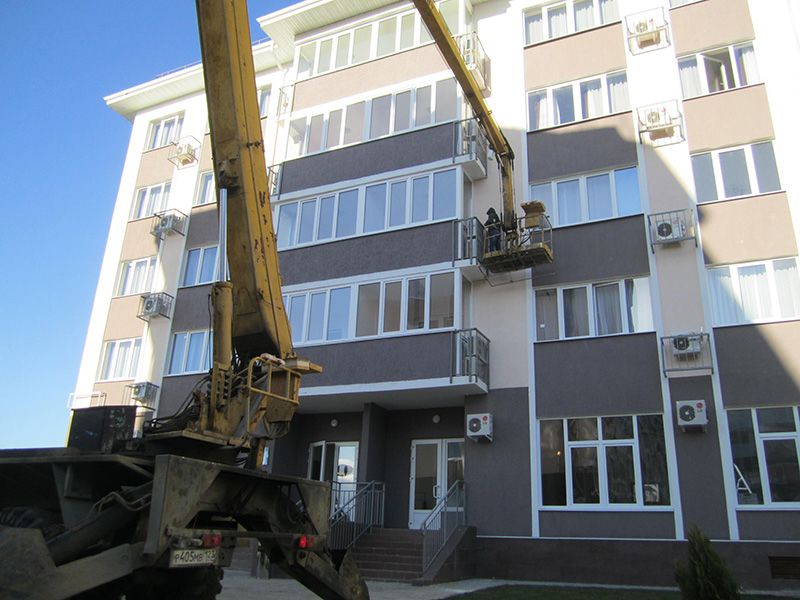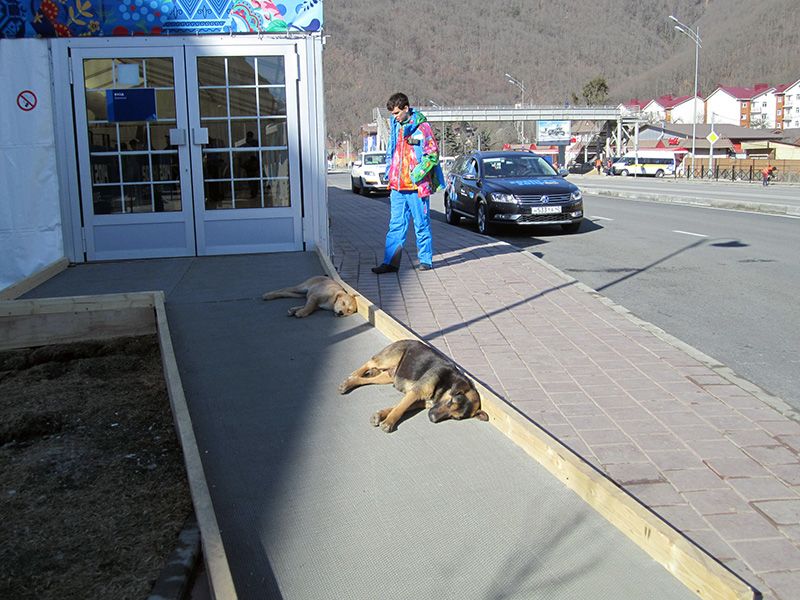
At the Sochi Games: The Olympic Atmosphere Around Town
Society Culture- English
- 日本語
- 简体字
- 繁體字
- Français
- Español
- العربية
- Русский
Much of the early global press coverage of the Winter Olympics in Sochi, Russia, focused on the danger of a terrorist attack at the games, the country’s legal discrimination against sexual minorities, and other factors posing a threat to the safety of athletes and fans. Now that a week has passed since the Opening Ceremony, though, the games seem to be progressing without incident. What are things like for the people now in Sochi for the quadrennial show?
A Disneyland-like Experience
The main venue for the Sochi Olympics is the Olympic Park, on the shore of the Black Sea. This “Coastal Cluster,” a collection of sports facilities ringing a central plaza, has more than a little feel of a theme park like Disneyland. In addition to the stadium used for the Opening and Closing Ceremonies, the Olympic Park has two hockey rinks, a speed skating rink, a rink to host both figure skating and short-track speed skating events, and a curling center. Rounding out this central collection of facilities are a practice skating rink, a dedicated area for award ceremonies, and the official media center for the games.
The ski and sled events, meanwhile, take place in the Krasnaya Polyana resort, the “Mountain Cluster” some 50 kilometers from the city center.
 The Olympic Park is just a short ride away from the Olympic Village, where athletes and coaches stay. The bicycle manufacturer Royal Dutch Gazelle provided more than 60 orange bikes for the members of Team Netherlands to get around during their stay.
The Olympic Park is just a short ride away from the Olympic Village, where athletes and coaches stay. The bicycle manufacturer Royal Dutch Gazelle provided more than 60 orange bikes for the members of Team Netherlands to get around during their stay.
Viewed from above, the Olympic Park is roughly circular in shape. It’s small enough that you can take a stroll around the entire perimeter, and none of the event venues are more than 30 minutes away on foot. Olympic athletes can often be seen jogging around the park, and some of them—particularly from the Netherlands, a nation of avid cyclists—have even brought bicycles to use while in Sochi. The atmosphere here is peaceful and the weather is comfortably warm, with temperatures reaching 15 degrees centigrade most days. With the exception of the early morning and late evening hours, the volunteers on duty outside are never bundled up.
Inside the sports facilities, the atmosphere grows considerably tenser, as the world’s top athletes engage in fierce competition with one another. But while there have been small glitches here and there in event organization, we have seen no major problems like threats to the safety of the crowds on hand. Safety was a serious concern in advance of the games, but these Olympics now seem little different from previous gatherings that ended without incident.
Nobody Allowed Without a Ticket
Behind this safety, though, is the Russian organizers’ strict approach to security. Every single person you see walking around the Olympic Park has purchased a ticket to be there: there are no nonticketed members of the general public allowed anywhere in or around the venues.
Purchasing tickets for an event, or even just to enter the Olympic Park, is a complicated process that involves registering passport information and providing a photo for identification purposes. There are checkpoints at the local train stations and the Olympic Park entrance where officers examine people’s documents to make sure they are supposed to be there.
This can make things unpleasant for Sochi’s residents in particular. Unless they have bought expensive passes to see an event, they cannot enter any venue—and indeed will find themselves blocked from entering the Olympic Park. The Sochi games are not a place for the locals to enjoy the Olympic atmosphere, or even to get a distant glimpse of one of their Russian heroes accepting a medal, unless they have paid for the privilege.
 Sochi’s southeastern Adler district, which hosts the mountain events, offers plenty of souvenir shopping.
Sochi’s southeastern Adler district, which hosts the mountain events, offers plenty of souvenir shopping.
The budget for these games is said to have reached the equivalent of ¥5 trillion, an all-time high, and the Sochi organizers are obviously taking no chances with security. Chechnya, less than 500 kilometers to the east, remains a potential source of instability despite the official end of antiterrorism operations there in 2009. Also nearby is Ukraine, where ongoing political instability is a concern. All events in the Sochi Olympics are being held in the two compact clusters on the coast and in the mountains, thus simplifying security operations. And the Olympic Park in the city center has only one entrance for ticket-holders, also making it easy to check who gets in.
Needless to say, this relentless focus on security has its downsides. One hallmark of the Olympic experience is the way it gets the hosting community involved, allowing local residents and foreign visitors to gather near the venues, even if they have no tickets, and liven things up. There is none of that friendly mingling on display in Sochi. These games are functional and efficient, but it’s hard to escape the feeling that they lack the soul of other Olympics to date.
The Construction and Canine Situations
 Many hotels for media use were still under construction as the world’s journalists arrived to report on the games.
Many hotels for media use were still under construction as the world’s journalists arrived to report on the games.
Although the games have been underway for a full week already, a look outside the Olympic Park and its surrounding facilities shows that construction and other preparations are far from complete in many places. Guests in one brand-new apartment-style hotel built for media use report a shortage of towels, which they are lucky to get changed once every three days or so. In my own hotel room, which I checked into more than a week ago, I have at last received soap and garbage bags. (I have no garbage can to put these in, though.) I also got my “Do not disturb” sign to hang on the doorknob at last a day or two ago.
Even the accouterments that were in place when I arrived show signs of shoddy workmanship. My room has already seen a broken shower curtain rod and door handles. Many journalists in Sochi report similar experiences in their lodgings.
Late one night, I found myself trapped in my hotel’s elevator for an entire hour. A similar fate befell a group of US bobsledders in their hotel just three days after one of them, Johnny Quinn, bashed his way through a bathroom door that would not open. That’s fine if you have the strength of an Olympian athlete, but we mortals don’t have this option if we need to escape. Accidents on this scale are nowhere near as rare as they should be, and just about everyone in Sochi can report some sort of small problem.
 Sochi strays take a break from the Olympic action to lie in the sun.
Sochi strays take a break from the Olympic action to lie in the sun.
Another thing that strikes visitors to Sochi is the number of dogs roaming loose on the streets. I’ve seen a number of dog fights during my time here, with the loser of the most recent one coming away with a seriously injured leg. There is the danger of rabies to think about. I’ve had a shot recently, but even so, a bite would be a big deal, medically speaking. And even walking around town with food in my hands was enough to bring a large dog running—I managed to escape onto a bus that time, but it’s one more thing to be careful about in Sochi.
The dog situation is apparently better than it once was. During the 2012–13 season, a number of test competitions took place for the various Olympic events. People who were here for those tell me that the city’s stray dog population is now just a third of what it was then.
The Power of a Volunteer’s Smile
There are plenty of positive stories to tell about the Sochi games, too. One of the best examples of these is the fantastic efforts by the Olympic volunteers.
These volunteers are everywhere—indeed, there seem to be more of them than fans at times. And they are always smiling. Tasks like checking IDs, searching hand luggage, and performing body checks fall overwhelmingly to the volunteers, and they handle the jobs with warm smiles on their faces. I came to Sochi thinking of Russians as a dour, cold people, but my time here has turned this image upside down. Peace does, indeed, begin with a smile.
The shuttle buses run on time. They are comfortable to ride and operate on easy-to-understand routes. For media people, who often must work on a precise schedule, this is a tremendous plus. Tokyo successfully marketed its plan for a compact summer games when it won the right to host the Olympics in 2020; in this respect it has much to learn from Sochi, such as the designation of dedicated traffic lanes for Olympic vehicles. Traffic jams could be devastating to people’s image of the host city’s organizational prowess, and I hope Tokyo can manage things as smoothly as Sochi is right now.
Now that we’re past the halfway mark in this year’s Olympics, we continue to hope they will finish without a terrorist attack or other serious incident. All of us here want to see the athletes do their very best and inspire viewers around the globe. This, in the end, is the key to ensuring that the world will give high marks to Sochi, Russia, for the games it put on.
(Originally written in Japanese on February 17, 2014. Photos by the author.)